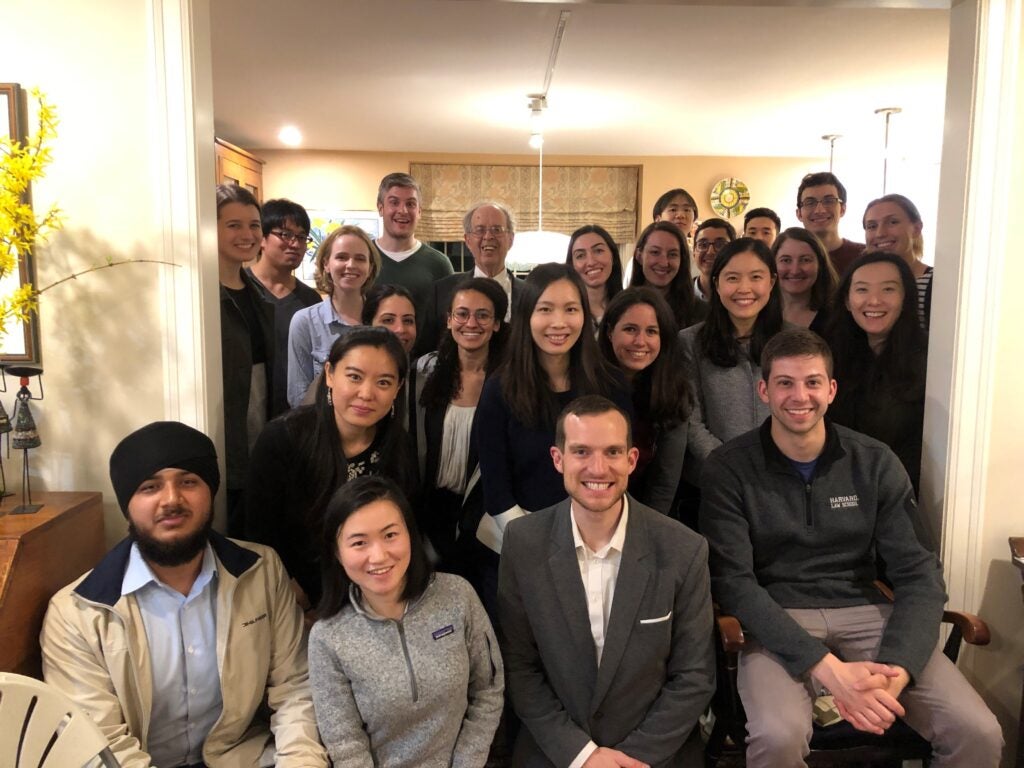By: Honorable John Cratsley (Ret.), Director of the Judicial Process in Trial Courts Clinic and Class

Over the 2019 Spring semester, 20 students in the Judicial Process in Trial Courts Clinic contributed over 1900 hours of legal research and writing to the Massachusetts state and federal judges, a record high for the clinic. The students’ contribution to our local judiciary is particularly significant in our state courts where budgets are tight and full-time law clerks limited. Student placements included nine with judges in U.S. District Court, eight with judges in the Massachusetts Superior Court, one with a judge in the Boston Municipal Court, one with a judge in the Newton District Court, and one with a judge in the Boston Juvenile Court.
Student legal research and writing for their judges included the full range of civil and criminal matters, such as motions for summary judgment, motions to dismiss, and motions to suppress, as well as habeas petitions, judicial review of agency decisions, evidence issues, and jury instructions. Students also had the opportunity to observe all the stages of jury trials – from empanelment to witness examinations to closings and verdict. Several students even had the opportunity to join their judge for a conversation with the members of the jury following the verdict. Lunches and personal conversations with their judges increased the opportunity to gain insight into judicial decision making.
The weekly class accompanying the clinic examines elements of the judicial process that students observe first-hand with their judges, including sentencing, judicial ethics, plea bargaining, mediation, the jury, and access to justice. During the semester, students met four international judges – three from Japan and one from Korea – and visited MCI Concord followed by dinner at Judge Cratsley’s home. The judges from overseas added valuable cross-cultural perspectives on judging and made presentations about their personal experiences with the recent inclusion of citizen jurors in criminal trials. One student who visited MCI was most intrigued by the National Education for Assistance Dog Services (NEADS) dog training program run by the inmates.
Student evaluations of their judicial placements describe the variety of gains from their clinical experience. One student emphasized her judge’s candid observations, “My judge shared her insights with us about the cases after the hearing, on whether the lawyers have done a good job and whether the merits of the case are strong.” Two other students wrote about the help they received with legal research and writing skills, “I went through five drafts on one occasion, and the judge made constructive comments about each draft. She was tremendously helpful in improving my legal writing.” “This clinical placement has led to a huge improvement in my legal writing skill. For every writing assignment, I received direct feedback from the judge and the clerks.”
Overall, students confirmed the unique value of the opportunity to work inside the judicial system directly with a judge; “The chambers were so much more collegial than I anticipated! I was thrilled at how welcoming everyone was.” “The placement exceeded my expectations. The judge and his clerks were absolutely wonderful to work with, and I learned so much from this clinical experience. The clinic has been the highlight of my law school experience.”
For me, as a clinical teacher, this is all about the value found in so many clinical experiences – the classroom and the law books come alive, become a discernible reality, in the courtroom and in chambers thanks to a remarkable group of sharing judges.
Filed in: Legal & Policy Work, Op-Ed
Contact Office of Clinical and Pro Bono Programs
Website:
hls.harvard.edu/clinics
Email:
clinical@law.harvard.edu